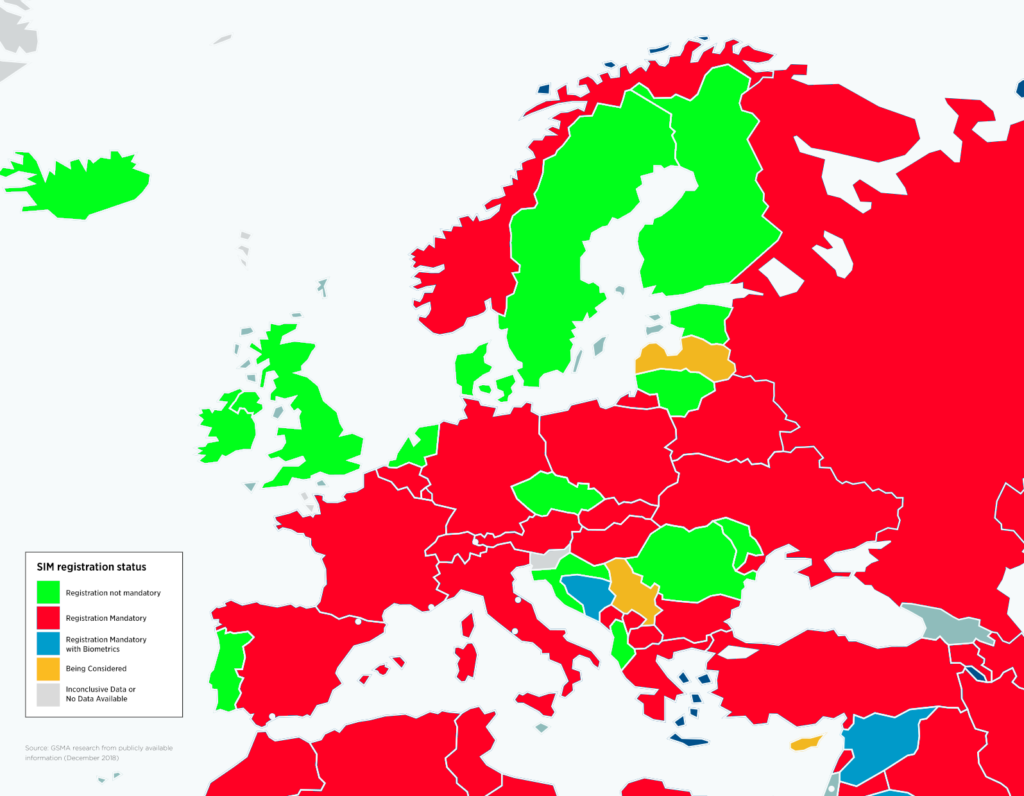Every country in Europe is different and some people think it will be difficult to use their cell phone while traveling or perhaps they might need several sim cards. Don’t worry, it’s actually very simple.
Traveling across several European countries
Traveling through Europe already has one less worry for your pocket. Since June 15 (2017), a new European legislation has come into force that eliminates the roaming charges of telephone operators in more than 28 countries in Europe.

This will greatly facilitate the life of those, for example, who are going to make a road trip across Europe. In practice, you can buy a cell phone sim card in a European country and use it on the same trip in other countries, without having to worry about paying for the additional (and expensive) costs that were charged when the customer changed countries. And let’s face it, it’s pretty annoying to keep changing the sim all the time!
These rules apply to cell phone and landline calls, sending text messages and using data services abroad.
That is, when using these services while traveling within the European Union, you will pay the same price as in the country where you contracted the services.
Just a tiny detail to keep in mind:
The end of roaming does not mean that the use of services will be unrestricted. To prevent fraud and abuse, “fair use” measures were taken against permanent roaming . For example: operators will be able to check the amount of time the customer has been using the roaming service during the last 4 months. This and other surveillance measures are not expected to affect the average traveler, but operators can place tariffs with limited data usage.
Where to buy the SIM-Card and what rates to use?
There are several local and multinational operators in each country in Europe, each of which has its own prices, promotions and rules for using the internet. When buying your sim card, take into account the use you intend to make of it: using Google Maps, social networks, Skype calls, Whatsapp, weather and normal calls are examples of what we use most on a trip.
To buy the sim card, there is no difficulty. They are sold in airports, train and bus stations, stationery stores, magazine stands, supermarkets, pharmacies … a multitude of places.
As to which network to choose, i wouldn’t worry too much about that. Coverage is pretty much the same all over Europe on any operator and pricing is pretty much the same.
Required ID to buy a sim card
Some countries require you to show your ID to buy a sim card. Here’s a map that shows which ones require ID and which ones don’t.

What to consider when using your cell phone in Europe
✓ Remember to bring an unlocked cell phone or one that accepts two chips (dual SIM).
✓ As everywhere, using cell phone data consumes a lot of battery. Always have the charger on hand.
✓ When you have access to Wi-Fi, use it!
✓ If you use all the data that comes with the contracted plan, you may have some difficulty in recharging in another country.
✓ Always read the “small print” of the contract.
Which Countries Does the New Roaming Legislation Apply to?
The “roam free” list includes the 28 most associated European Union countries: Germany , Austria , Belgium , Bulgaria , Cyprus , Croatia , Denmark , Slovakia , Slovenia , Spain , Estonia , Finland , France , Greece , Hungary , Ireland , Iceland, Italy , Latvia , Liechtenstein, Lithuania , Luxembourg , Malta , Monaco, Netherlands , Poland , Portugal , Czech Republic , United Kingdom , Romania, San Marino and Sweden .
Andorra and Switzerland, despite being in Europe, did not adhere to these measures.
What about Cruises and Air Travel?

The telephone at no additional cost in the tariff can also be used on cruises and airplanes, but be careful with the network, which must be land based . If services are offered via satellite, the cost has no price limits. Therefore, it is recommended to disable the data and choose the network manually and not automatically.

